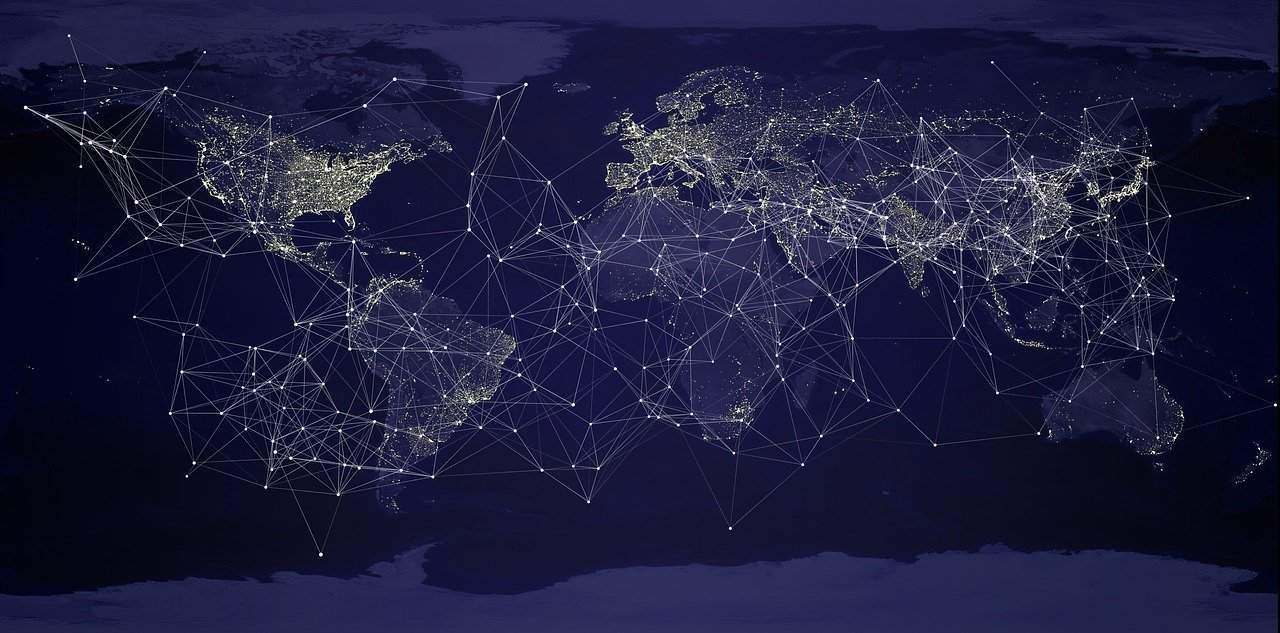Internationalization Meaning and Definition with its Advantages; With the globalization of the world economy, the number of companies that are active globally is increasing at the same time. Although international business as a concept has existed since the days of the East India Company and lasted into the first decades of the 20th century, the expansion of international companies was halted due to the two world wars. Then there is the hesitant move to internationalize the operations of multinational companies.
Here is the article to explain, What is the Internationalization? with their main points of Introduction, Meaning, Definition, Benefits, Advantages, and its Factors.
What really made the company’s global expansion possible was the Chicago School of Economic Thought, fueled by the legendary economist Milton Friedman, who defended neoliberal globalization. This ideology, which gradually began in the early 1970s, became a major force to be reckoned with in the 1980s and became the norm in the 1990s. The result of all this is the rapid expansion of global companies around the world.
In this way, the international business grew in scope and size to the point where it is today. The world economy dominates by multinational companies from around the world. What was originally a western corporate phenomenon has now spread to firms from the east (from countries such as India and China). This module examines the phenomena of international business from various perspectives, such as B. The characteristics of international businesses, their influence on local economies, target economies, and the way they must operate and succeed in the global competition for ideas and profits.
Above all, international business must ensure that it combines a global perspective and local adaptations, leading to glocal phenomena; where it must think globally and act locally. In addition, international companies need to ensure that they do not violate local laws while returning their profits to their home countries.
Introduction to Internationalization.
In addition, consideration should give to employment issues and the conditions of work governing global business operations. With so many third-world countries liberalizing and opening up their economies; there is no better time to do international business than right now. This balance by the counterbalancing force of the ongoing economic crisis has dealt a crushing blow to the world economy. The third force that defines international business is that third-world countries are not only ready to welcome foreign investment; but, are also trying to emulate international business and become like that. Hence, these aspects discussing in detail in the following article.
Lastly, doing international business must ensure that several operating procedures and norms are sensitive to local cultures and customs; while sticking to their brands which develop for the world market. This is the challenge we discuss earlier as “global” alignment. Any company operating in more than one country can describe as an international company. International business refers to trade and investment operations carried out by companies across national borders.
Companies can collect, acquire, produce, market and carry out other value creation processes at the international level and on an international scale. Business associations can also participate in cooperation with business partners from various countries. Apart from individual companies, governments and international institutions can also conduct international business transactions. Companies and countries can exchange various types of physical and mental assets. These assets can be in the form of products, services, capital, technology, knowledge, or jobs.
Meaning and definition of internationalization.
Expansion through internationalization is an organizational strategy in expanding outside the national market. The need to expand through internationalization arises when an organization has reached its full potential of internal expansion and seeks opportunities to expand across national borders.
However, moving to a global scale is no easy task. Organizations must adhere to strict criteria for price, quality, and on-time delivery of goods and services; which may vary from country to country.
Expansion through internationalization can be done through one of the following Target and Strategies:
International Target:
Companies pursue an international value creation strategy by offering these products and services in overseas markets where they are not available. This can be achieved by exercising tight control over activities abroad and providing standard products with little or no differentiation.
Multilateral Target:
As part of this strategy, companies offering different services offer personalized products and services that are suited to local conditions in overseas markets. This can of course be an expensive task as research and development, production and marketing have to be carried out taking into account local conditions in different countries.
Global Target:
Global companies rely on a profitable structure and offer these products and services in specific overseas markets where they have experience. In this way, standard products or services are offered to certain countries around the world.
Transnational Target:
According to this strategy, companies are pursuing a combined approach of transnational and global strategies. Companies rely on both cost-effective structures and local responses; H. following local conditions. In this way, the company offers its standard products and services while ensuring that they are appropriate to local conditions in the countries in which it operates.
Internationalization of Business.
Let’s attempt to discover the motives why an enterprise would like to go global. It is essential to be aware that there are many challenges in the route of internationalization, however, we’ll focal point on the tremendous attributes of the system for the time being.
There are 5 principal motives why an enterprise can also choose to go global;
First-mover Advantage;
It refers to getting into a new market and experience the benefits of being first. It is handy to rapidly begin doing enterprise and get early adopters with the aid of being first.
Opportunity for Growth;
Growth viable is a very frequent motive for internationalization. Your market may also saturate in your domestic us of a and consequently, you can also set out on exploring new markets.
Small Local Markets;
Start-ups in Finland and Nordics have continually seemed at internationalization as a fundamental method from the very starting due to the fact their neighborhood market is small.
Increase of Customers;
If clients are in brief supply, it may additionally hit a company’s doable for growth. In such a case, groups may also seem to be for internationalization.
Discourage Local Competitors;
Acquiring a new market may additionally mean discouraging different gamers from getting into the equal enterprise area as one corporation is in.
Benefits or Advantages of Internationalization.
There are a couple of benefits of going international. However, the most hanging and impactful ones are the following four.
Product Flexibility.
International corporations having merchandise that don’t truly promote properly ample in their neighborhood or regional market can also locate a plenty higher consumer base in worldwide markets. Hence, a commercial enterprise residence having a world presence want no longer dump the unsold inventory of merchandise at deep reductions in the neighborhood market. It can search for some new markets where the merchandise promotes at a greater price.
An enterprise having worldwide operations may also additionally locate new merchandise to promote internationally which they don’t provide in the nearby markets. International groups have a wider target audience and therefore they can promote a large vary of merchandise or services.
Less Competition.
Competition can be a neighborhood phenomenon. International markets can have much less opposition where the groups can seize a market share quickly. This thing is mainly nice when superb and most beneficial merchandise is available. Local agencies may also have identical first-class products, however, global corporations may also have little opposition in a market the place an inferior product is available.
Protection from National Trends and Events.
Marketing in various international locations reduces the vulnerability to occasions of one country. For example, the political, social, geographical, and non secular elements that negatively affect us may additionally be offset by using advertising the identical product in an exceptional country. Moreover, dangers that can disrupt commercial enterprise can be minimized through advertising internationally.
Learning New Methods.
Doing commercial enterprise in greater than one u. s . a . gives magnificent insights to research new approaches of carrying out things. This new expertise and trip can pave the way to success in different markets as well.
Globalization.
Although globalization and internationalization are used in an equal context, there are some important differences.
- Globalization is a ton large technique and frequently consists of the assimilation of the markets as a whole. Moreover, when we speak about globalization, we take up the cultural context as well.
- Globalization is an intensified manner of internationalizing a business. In prevalent terms, international corporations are large and extra huge than low-lying worldwide enterprise organizations.
- Globalization capability the intensification of cross-country political, cultural, social, economic, and technological interactions that result in the formation of transnational enterprise organizations. It additionally refers to the assimilation of economic, political, and social initiatives on an international scale.
- Globalization additionally refers to the costless cross-border transition of items and services, capital, knowledge, and labor.
Factors Causing Internationalization (Globalization) of Businesses.
There are many elements associated with the trade of technology, worldwide policies, and cultural assimilation that initiated the manner of globalization. The following are the most essential elements that helped globalization take structure and unfold it drastically;
The Reduction and Removal of Trade Barriers.
After World War II, the General Agreement on Tariffs and Trade (GATT) and the WTO have decreased tariffs and more than a few non-tariff obstacles to trade. It enabled extra international locations to discover their comparative advantage. It has a direct influence on globalization.
Trade Negotiations.
The Uruguay Round of negotiations (1986–94) can be viewed as the actual boon for globalization. It is viewed as a massive set of measures that had been agreed upon completely for liberalized trade. As a result, the world exchange extent improved using 50% in the following 6 years of the Uruguay Round, paving the way for groups to span their choices at a global level.
Transport Costs.
Over the remaining 25 years, sea transport prices have plunged 70%, and the airfreight expenses have nosedived 3–4% annually. The result is a improvement in worldwide and multi-continental alternate flows that led to Globalization.
Growth of the Internet.
The enlargement of e-commerce due to the increase of the Internet has enabled corporations to compete globally. Essentially, due to the availability of the Internet, customers are involved to purchase merchandise online at a low rate after reviewing the nice offers from more than one vendors. At the identical time, online suppliers are saving a lot of advertising and marketing costs.
Growth of Multinational Corporations.
Multinational Corporations (MNCs) have characterized world interdependence. They embody countless countries. Their sales, profits, and the drift of manufacturing are reliant on various nations at once.
The Development of Trading Blocs.
The ‘regional exchange agreement’ or ‘regional trade agreement’ (RTA) abolished interior change limitations and changed them with a frequent exterior tariff towards non-members. Trading blocs in reality promote globalization and interdependence of economies using alternate creation.

















